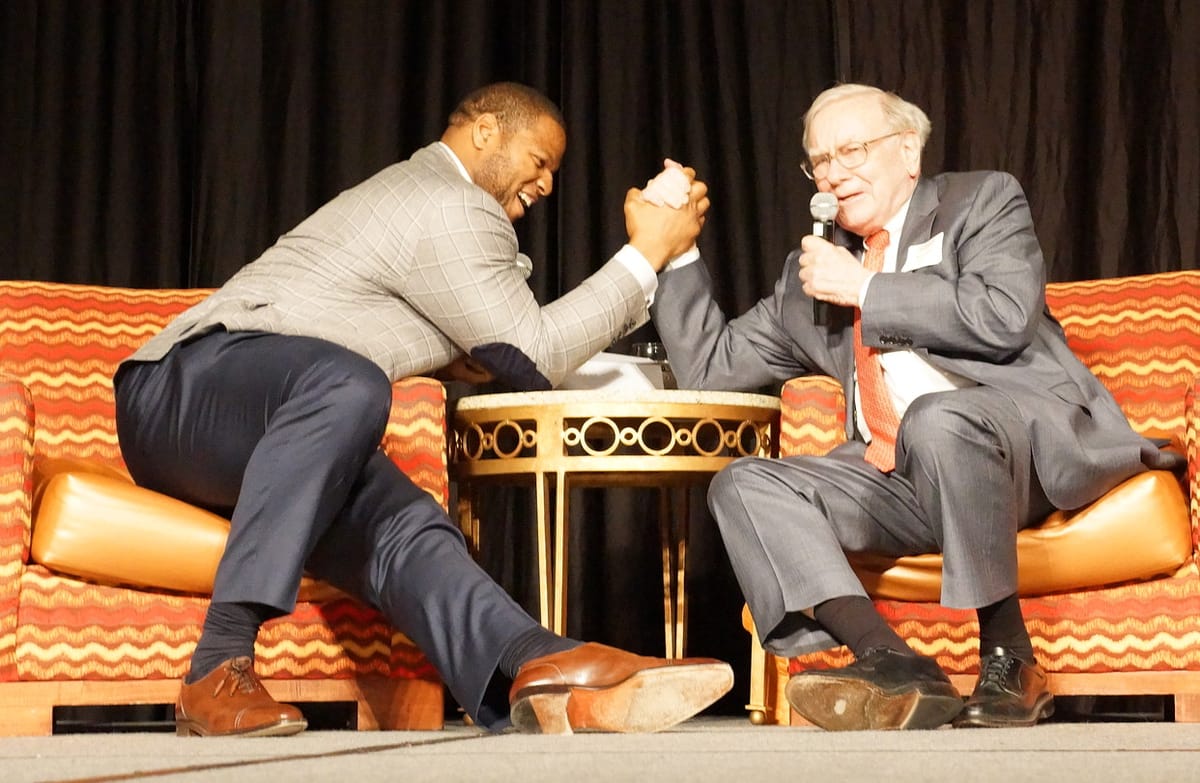The Snowball by Warren Buffett: Key Takeaways for Athlete Entrepreneurs.

Warren Buffett, often called the "Oracle of Omaha," is one of the most successful investors in the world. His biography, The Snowball: Warren Buffett and the Business of Life by Alice Schroeder, offers a deep dive into his life, business philosophy, and the principles that guided him to build a multibillion-dollar empire. For athletes who are venturing into the business world, Buffett’s story is not just an inspiring read; it’s a masterclass in building a sustainable and prosperous career beyond sports.
Here are some key learnings from The Snowball that can help athlete business owners thrive.
1. The Power of Compounding
The concept of "the snowball" is central to Buffett’s life philosophy. He compares his wealth-building journey to rolling a small snowball down a hill, which gathers more snow and becomes larger as it rolls. This metaphor highlights the power of compounding - small, consistent efforts over time lead to significant growth.
Lesson for Athletes: In sports, success often comes from consistent practice, incremental improvements, and dedication over time. The same applies to business. Whether it's growing your savings, building a brand, or expanding a company, small, disciplined actions will compound into significant results. Start with small, achievable goals and build on them steadily.
2. Invest in What You Understand
Buffett is famous for his philosophy of investing only in businesses he thoroughly understands. He avoids trends or industries that he can't easily comprehend, instead focusing on companies with clear, long-term value.
Lesson for Athletes: Just as you wouldn't step onto a field or court without knowing the rules of the game, you shouldn’t dive into a business venture without a deep understanding of the industry. Leverage your existing knowledge and experiences to choose business opportunities that you’re passionate about and have a strong grasp of. This reduces risks and increases the likelihood of success.
3. Value Long-Term Relationships
Buffett emphasizes the importance of long-term relationships in both business and life. His partnerships and friendships, some of which have lasted decades, are built on trust, mutual respect, and shared values. These relationships have been instrumental in his success.
Lesson for Athletes: In both sports and business, building and maintaining strong relationships is key. Networking, partnerships, and mentoring are invaluable in growing a business. Treat every relationship with care, whether it’s with customers, partners, or employees. Long-term success is often built on the foundation of solid, trustworthy relationships.
4. Live Below Your Means
Despite being one of the wealthiest individuals on the planet, Buffett is known for his frugality. He lives in the same house he bought in 1958, drives modest cars, and avoids unnecessary extravagance. This lifestyle reflects his belief in living below his means and focusing on long-term financial security rather than short-term luxuries.
Lesson for Athletes: It can be tempting to spend lavishly when you’re earning well, especially if you’ve enjoyed success in sports. However, adopting a more frugal approach and focusing on long-term financial security is crucial. Save and invest wisely to ensure that your wealth grows over time, providing security long after your athletic career ends.
5. Embrace Lifelong Learning
Buffett is a voracious reader and an advocate for lifelong learning. He spends hours each day reading newspapers, financial reports, and books to continually expand his knowledge. This commitment to learning has been a cornerstone of his success.
Lesson for Athletes: Just as you continually hone your skills in sports, you should also be committed to learning in business. Stay curious, keep up with industry trends, and invest time in personal development. The more you learn, the better equipped you’ll be to make informed decisions and adapt to changing circumstances.
6. Patience and Discipline Pay Off
Buffett is known for his patient and disciplined approach to investing. He doesn’t chase quick returns but instead focuses on long-term value, often holding investments for decades. This patience has paid off, as he has built immense wealth through steady, long-term growth.
Lesson for Athletes: In sports, as in business, patience and discipline are essential. Success rarely comes overnight. Be patient with your progress, stick to your principles, and avoid the temptation to make hasty decisions for short-term gains. A disciplined, long-term approach will yield greater rewards in the end.
7. Protect Your Reputation
Buffett famously said, “It takes 20 years to build a reputation and five minutes to ruin it.” He places immense value on integrity and honesty in all his dealings, understanding that a good reputation is one of the most valuable assets a person can have.
Lesson for Athletes: Your reputation is critical, both in sports and in business. Conduct yourself with integrity, be transparent in your dealings, and always deliver on your promises. A strong, positive reputation will open doors and create opportunities, while a damaged one can be difficult, if not impossible, to repair.
Conclusion: Building Your Own Snowball
The Snowball offers invaluable insights into Warren Buffett’s approach to life and business, many of which are directly applicable to athlete business owners. By embracing the principles of compounding, investing in what you understand, maintaining strong relationships, living frugally, committing to lifelong learning, exercising patience, and protecting your reputation, you can build a successful and sustainable business career.
As an athlete, you’ve already developed the discipline, focus, and resilience needed to excel. By applying these same traits to your business ventures and learning from Buffett’s example, you can ensure that your “snowball” continues to grow, providing you with lasting success long after your time on the field or court has ended.
